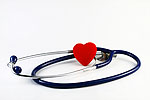 This story is all about doctors’ advice. The target is high blood pressure and the subject is whether alternative health methods can work for you. Here is what an array of cardiologists — heart experts — believes on the subject.
This story is all about doctors’ advice. The target is high blood pressure and the subject is whether alternative health methods can work for you. Here is what an array of cardiologists — heart experts — believes on the subject.
There is no question that patients are inquiring more and more about how natural medicine could help lower their blood pressure. There is a shift away from drugs happening. With this in mind, researchers conducted a review of evidence for a wide range of natural hypertension solutions.
Overall, there is not enough proof to recommend any alternative medicine on a regular basis. But, on a person-by-person basis, they believe that natural medicine could be very useful. Every person is different, and every person may react to a medicine in different ways.
Related Articles: Foods that Raise Blood Pressure
Here are the top alternative remedies — some natural, some not –researchers have identified:
1. Lifestyle: They emphasize that all patients with hypertension should adhere to the low-salt DASH (Dietary Approaches to Stop Hypertension) diet, which is high in fiber and low in fats and incorporates lots of fruits and vegetables. Another lifestyle measure is to follow an exercise regimen for shedding pounds.
2. Acupuncture/Meditation: Research on both practices is mixed — the types of patients included, the methods used, and the results vary from study to study. While there is no conclusive evidence that either lowers blood pressure, researchers found that acupuncture reduces blood pressure compared to placebo in patients also taking anti-hypertensive medications, while in a meta-analysis, transcendental meditation appeared to lower blood pressure. Other techniques that may provide some benefit include Zen Buddhist meditation and “Qigong” (the basis of tai chi).
3. Supplements: The remedy with the best evidence is coenzyme Q10, an enzyme involved in energy production that also acts as an antioxidant. Patients with hypertension tend to have lower levels of the enzyme, and studies found that coenzyme Q10 supplements significantly reduced blood pressure. The researchers think it could have a profound effect. As well, potassium helps lower blood pressure, and there is evidence that increasing the amount of potassium we get through the foods we eat could carry some of the same mild benefits as taking supplements.
4. Herbs: Researchers identified mistletoe extract, used in Chinese medicine, as a herbal remedy potentially useful for hypertension. Also, hawthorn, a type of tree, is also used, but provides only a slight reduction in blood pressure. Some remedies they found to possible increase blood pressure include St. John’s wort, ephedra/ma huang, yohimbine, and licorice. Consult with your doctor before taking any of these herbs.
5. Devices: A few devices may help. Two that can be used at home are the “RESPeRATE” breathing device and the “Zona Plus” handheld device.
The RESPeRATE system uses a breath sensor and gives patients feedback through headphones to help them slow their breathing, which research suggests benefits blood pressure. If used 15 minutes a day, studies show that RESPeRATE leads to a modest decrease in hypertension.
The Zona Plus is a device that patients grip in either hand and use to perform multiple sets of squeezing at different levels in response to electronic cues. Researchers say there is no good explanation as to why this works, but studies found the device decreased hypertension in patients using it three days a week for at least eight weeks.
